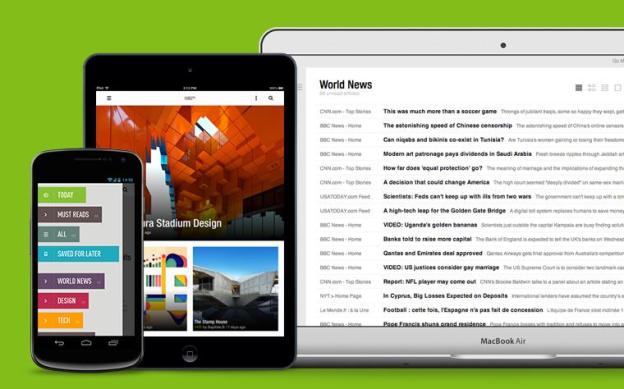 With only a month to go before Google brings the curtain down on its RSS reader, competing services have been busy sprucing up their own offerings in a bid to grab the hordes of lost souls who’ll be searching for a new home for their beloved feeds.
With only a month to go before Google brings the curtain down on its RSS reader, competing services have been busy sprucing up their own offerings in a bid to grab the hordes of lost souls who’ll be searching for a new home for their beloved feeds.
When Google announced in March its intention to shutter its RSS reader, Feedly was quick to put out the call to Reader users looking for an alternative service. Within days it picked up more than half a million new users, a figure which quite possibly resulted in smoking servers, though the team pressed on regardless.
On Monday the folks at Feedly gave a progress report on its efforts to soup up its engine room in expectation of an even bigger influx of new users at the end of the month.
“Our focus over the last 60 days has been to add new hardware and release weekly incremental updates to make the transition from Google Reader to feedly as seamless as possible,” the service said on its blog.
Feedly has been pulling ideas from its User Voice site, where anyone can suggest ideas for improving the service. From these ideas, the team has designed a roadmap for Feedly’s future development, with the following areas at the forefront of the service’s plans:
1 – Speed. This is the most important aspect of the feedly experience. We recently hired some great people on both the dev and ops sides and we look forward to sharing with you the result of their work
2 – Search within my feedly
3 – Pure web access
4 – Windows Phone and Windows 8
5 – Improved group sharing
6 – Bug fixes (login, utm_source, loading…, missing feedly mini, adding feeds)
Feedly also announced integration with a number of RSS apps – including Reeder, Press, Nextgen Reader, Newsify and gReader – enabling users to access their Feedly feed before Google Reader is retired on July 1.
While Feedly certainly appears to be making all the right moves, it isn’t, of course, the only service hoping to pick up some new users in the coming weeks. For a rundown of the best Google Reader alternatives out there, check out DT’s comprehensive guide here.


